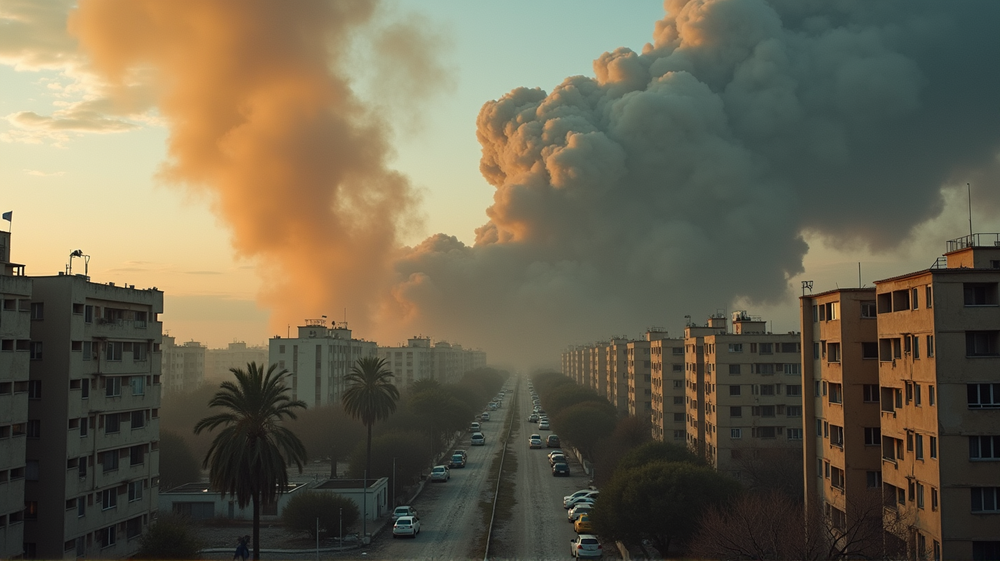In a dramatic escalation of hostilities, Iran launched a series of missiles into southern Israel, one of which heavily damaged a hospital complex, wounding over 200 people, including patients and medical staff. This direct hit on civilian infrastructure has intensified an already volatile situation, prompting serious responses from global leaders. According to AP News, these ongoing attacks underscore the fragile balance of power in the Middle East and heighten fears of a broader conflict.
Hospital in Chaos as Missiles Rain Down
The Soroka Medical Center in Beersheba became the unexpected epicenter of tragedy when Iranian missiles struck its premises, causing extensive damage and forcing the evacuation of many patients. Fortunately, the recent evacuation of an old surgery building minimized potential casualties. Nevertheless, the attack has left the hospital inoperable for all but the most critical cases.
Civilian Casualties and Rescues Amidst Devastation
Amidst the destruction in residential areas, stories of survival and resilience emerge. Smoke and debris filled the air as emergency responders bravely rescued residents from damaged apartments in Tel Aviv and Ramat Gan. The sight of children being carried to safety deeply moved the global audience and highlighted the human cost of military aggression.
Israel’s Military Response and International Position
In retaliation, Israel conducted airstrikes targeting Iran’s nuclear facilities, including the Arak heavy water reactor. The Israeli leadership has been vocal in its threats, dramatically stating that Iranian leaders should fear for their survival if provocations continue. Israel’s defense systems, including the Iron Dome, successfully intercepted additional Iranian missiles, demonstrating their readiness and strategic capability.
Diplomacy in Turmoil as Global Leaders Weigh In
The international community watched closely as diplomatic talks unfolded. Iran’s Foreign Minister announced intentions to meet with European counterparts, signaling a potential shift towards negotiation. However, with U.S. President Donald Trump hinting at a more active military stance, the situation remains uncertain. Iran’s resistance to demands to curb its nuclear program further complicates efforts to find a peaceful resolution.
A Region on Edge: The Potential for Further Escalation
Both Israel and Iran appear steadfast in their current path, suggesting that tensions may escalate further. As negotiations falter and military posturing persists, the threat of a larger-scale conflict looms. The world awaits diplomatic breakthroughs that could stabilize this tense region, where the potential for lasting peace remains elusive.
Despite these precarious times, calls for a ceasefire persist, with many urging all parties to prioritize de-escalation and dialogue over destruction. The stakes have never been higher, with the future of the Middle East hanging in the balance.












